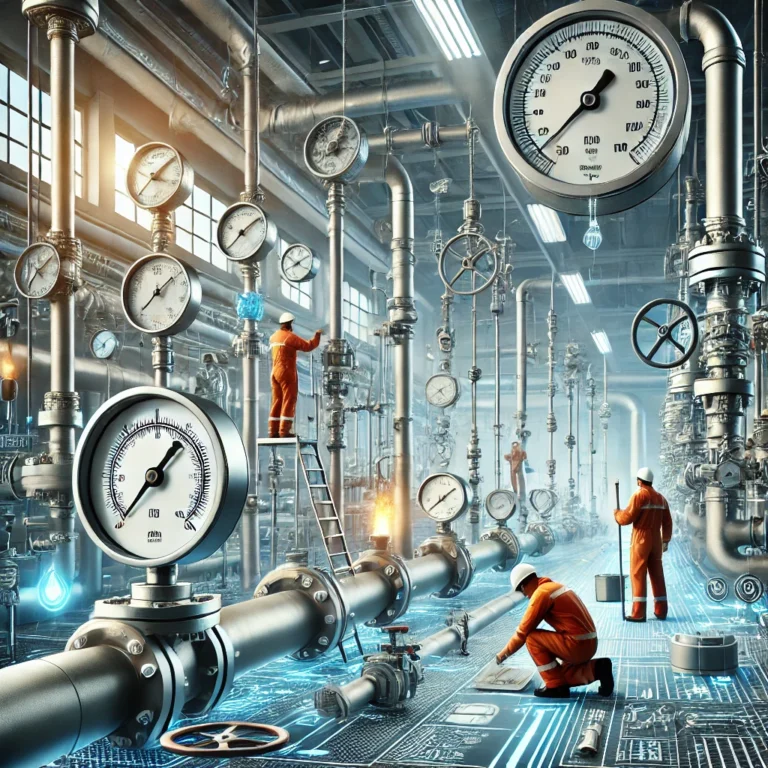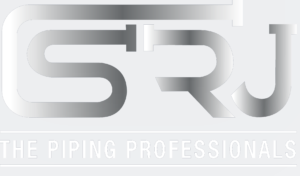The Importance of Regular Maintenance for Industrial Piping Systems
Think of your industrial piping system as the veins of your facility, distributing essential resources to every part of your operation. Just like a healthy body depends on clean and functioning veins, your facility relies on a well-maintained piping system. Neglecting this critical component leads to expensive repairs, unplanned downtime, or worse—catastrophic failures. Addressing complex piping challenges is therefore vital for the smooth operation of your facility.
To keep your industrial piping system in optimal condition, regular maintenance is key.
In this article, we will discuss the importance of regular maintenance, the most common problems in industrial piping systems, preventive tips, and a comprehensive maintenance checklist. By following this guide, you can maintain a safe, efficient, and long-lasting piping system.

Why Regular Maintenance Is Critical for Industrial Piping Systems
Regular maintenance is not just good practice—it’s essential for the longevity of your industrial piping system. These systems face significant stress from traction, thermal changes, and exposure to corrosive substances. Over time, these factors can lead to failures if not properly managed.
Safety First
Maintaining your piping system reduces safety risks for both your workforce and the environment. Leaks, bursts, or failures are common in neglected pipes, and they can lead to hazardous situations. For example, even a minor leak in a pipe carrying toxic chemicals can escalate into a major safety issue if not detected early.
Cost Savings
Although maintenance requires an upfront investment, it saves significant costs in the long run. Unplanned failures cause production downtime, lost revenue, and costly repairs. Regular inspections and prompt repairs prevent small issues from turning into expensive problems. Learn more about the benefits of preventive maintenance.
Compliance with Industry Regulations
Many industries must comply with strict regulations on piping safety and maintenance. Failure to meet these standards can result in fines, legal action, and damage to your company’s reputation. A consistent maintenance schedule ensures your piping system meets all safety and regulatory requirements.
Environmental Protection
Piping systems that carry hazardous materials pose a risk to the environment if they fail. Regular maintenance helps prevent leaks and failures, protecting water sources and ecosystems from contamination. Find out more about environmental compliance standards.
Common Problems in Industrial Piping Systems and How to Address Them
Even with regular maintenance, industrial piping systems can face challenges. Knowing how to address common issues keeps your system running efficiently.
Corrosion
Corrosion occurs when pipe materials react with chemicals or moisture, weakening the structure and leading to leaks.
How to Prevent Corrosion:
- Routine Inspections: Check for early signs of rust, discoloration, or pitting.
- Protective Coatings: Apply coatings like epoxy or galvanizing to prevent direct contact between pipes and corrosive substances.
- Use of Corrosion-Resistant Materials: Opt for corrosion-resistant materials, such as stainless steel or plastic, to reduce the risk.
Leaks
Leaks are common and can happen due to corrosion, joint failure, or pressure build-up. Even small leaks lead to product loss, increased costs, and safety concerns.
How to Prevent Leaks:
- Pressure Monitoring: Continuously monitor pressure to avoid exceeding safe limits.
- Inspect Joints Regularly: Joints are common points for leaks, so check them frequently.
- Install Leak Detection Systems: Early detection systems can identify leaks quickly, allowing for immediate repair. Read more on modern leak detection systems.
Blockages
Blockages occur when debris, scale, or other materials accumulate inside pipes, restricting fluid flow. This causes efficiency loss, increased pressure, and potential damage.
How to Prevent Blockages:
- Regular Cleaning: Clean pipes using techniques such as pigging or hydrojetting.
- Install Filtration Systems: Filtration prevents debris from entering the pipes.
- Monitor Flow Rates: A sudden drop in flow rates may indicate blockages.
Cracking and Fatigue
Pipes are constantly exposed to stresses like pressure changes and mechanical vibrations, which can lead to cracks or fatigue.
How to Prevent Cracking:
- Conduct Periodic Inspections: Regularly inspect pipes for signs of cracks or fatigue.
- Perform Stress Analysis: Identify high-stress sections and reinforce them.
- Ensure Proper Support: Adequate support helps reduce mechanical vibrations and prevent cracks.
Preventive Maintenance Tips for Industrial Piping Systems
Preventive maintenance extends the life of your industrial piping system and reduces the risk of costly failures. Below are essential preventive maintenance tips.
1. Establish a Regular Maintenance Schedule
A clear maintenance schedule ensures that all necessary tasks—such as inspections, cleaning, and pressure testing—are completed on time.
- Determine Frequency: Consider the age of the piping system, operating conditions, and material types to establish how often maintenance should be performed.
- Keep Detailed Records: Document maintenance activities, including dates, observations, and any repairs made. This helps track recurring issues and monitor the system’s condition.
2. Conduct Regular Inspections
Inspections are vital for identifying wear, corrosion, or damage before they become major problems.
- Visual Inspections: Examine exposed parts of the system for leaks, corrosion, or cracks.
- Non-Destructive Testing (NDT): Use NDT techniques like ultrasonic testing to detect internal defects without damaging the pipes.
3. Monitor Key Performance Indicators (KPIs)
Monitoring KPIs such as pressure, flow rate, and temperature can provide early warnings of problems.
- Check Pressure and Flow Rate: Sharp fluctuations in these values often signal underlying issues.
- Temperature Monitoring: Track fluid temperatures to prevent thermal stress, which can damage the system.
4. Implement Corrosion Control Measures
Corrosion control is essential for preventing pipe failures. Without proper measures, corrosion can cause extensive damage.
- Apply Protective Coatings: Coat the interior and exterior of pipes to shield them from corrosive substances.
- Cathodic Protection: Use systems like sacrificial anodes to combat corrosion.
5. Train Your Maintenance Team
A well-trained team is crucial for executing preventive maintenance tasks effectively.
- Provide Ongoing Training: Regular training sessions keep the team up-to-date on the latest maintenance techniques and safety practices.
- Cross-Train Employees: Ensure multiple team members are trained in different aspects of the system to ensure consistency in maintenance efforts.
6. Replace Worn Components Before They Fail
Replacing worn components—such as gaskets, seals, and joints—before they fail helps avoid unexpected breakdowns.
- Schedule Replacements: Plan to replace parts based on their expected lifespan.
- Keep an Inventory of Critical Parts: Ensure you have spare parts on hand to minimize downtime during replacements.
Maintenance Checklist for Industrial Piping Systems
Here’s a sample checklist to help keep your industrial piping system in top shape:
Weekly Maintenance
- Inspect exposed pipes for leaks or corrosion.
- Check pressure and flow rates for unusual fluctuations.
- Verify that valves are functioning properly.
Monthly Maintenance
- Inspect insulation and protective coatings.
- Clean fluid filters and strainers.
- Test pressure relief valves.
Quarterly Maintenance
- Perform non-destructive testing (NDT) for internal corrosion or cracks.
- Tighten mechanical joints and seals.
- Lubricate valve mechanisms and moving parts.
Every Six Months
- Conduct pressure testing to detect leaks.
- Maintain cathodic protection systems.
- Clean pipes to remove debris or scale buildup.
Annual Maintenance
- Replace seals, gaskets, and other components showing wear.
- Perform a full system audit to assess overall condition.
- Update maintenance records and address recurring issues.
By following this checklist, you ensure that your industrial piping system remains reliable, efficient, and safe. Adjust the checklist as necessary based on your specific facility requirements.
Conclusion: The Key to Industrial Piping System Efficiency
Maintaining an industrial piping system requires consistent attention and care. Regular maintenance is essential for safety, reliability, and operational efficiency. By understanding the importance of regular maintenance, addressing common issues, and implementing preventive measures, you can avoid costly downtime and extend the life of your system.
At SRJ Piping India Pvt Ltd, we offer expert guidance and support to help you maintain your industrial piping system. Contact us today to learn more about how we can assist you in keeping your facility running smoothly and efficiently.
